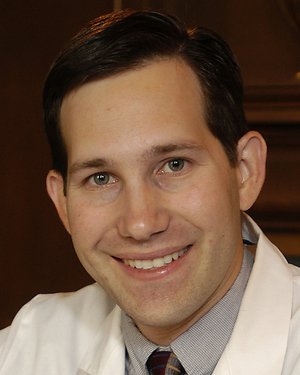Research Lab Results
-
Kenneth W. Kinzler Laboratory
Dr. Kinzler’s laboratory has focused on the genetics of human cancer. They have identified a variety of genetic mutations that underlie cancer, including mutations of the APC pathway that appear to initiate the majority of colorectal cancers and IDH1/2 mutations that underlying many gliomas. In addition, they have developed a variety of powerful tools for analysis of expression and genetic alterations in cancer. Most recently, they have pioneered integrated whole genome analyses of human cancers through expression, copy number, and mutational analyses of all the coding genes in several human cancer types including colorectal, breast, pancreatic and brain. The identification of genetic differences between normal and tumor tissues provide new therapeutic targets, new opportunities for the early diagnosis of cancer, and important insights into the neoplastic process.
-
The Halushka Lab
The Halushka laboratory is interested in the overarching question of expression localization in tissues. To address this, the laboratory has set out upon several avenues of discovery in the areas of microRNA expression, proteomics and tissue gene expression. Many of these queries relate to the cardiovascular field as Dr. Halushka is a cardiovascular pathologist. Come learn about the science being done in the laboratory. -
In-vivo Cellular and Molecular Imaging Center
The In-vivo Cellular and Molecular Imaging Center conducts multidisciplinary research on cellular and molecular imaging related to cancer. We provide resources, such as consultation on biostatistics and bioinformatics and optical imaging and probe development, to understand and effectively treat cancer. Our molecular oncology experts consult on preclinical studies, use of human tissues, interpretation of data and molecular characterization of cells and tumor tissue. -
Mass Spectrometry Core
The Mass Spectrometry Core identifies and quantifies proteins that change expression in well-characterized protein fractions from cancerous cells or tissues. This includes identifying and quantifying changes in binding partners and post-translational modifications. Column chromatography and gel electrophoresis-based one and two-dimensional separations of protein complexes coupled to mass spectrometry are used. Techniques such as difference gel electrophoresis (DIGE), isobaric tag for relative and absolute quantitation (iTRAQ) and 18O-labeling as well as non-labeling methods (MudPit, multi-dimensional protein identification technology) are available for quantifying relative differences in protein expression and post-translational modifications. We developed methods to detect post-translational modifications such as LCMS methods to accurately determine the intact mass of proteins, selective fluorescent labeling of S-nitrosothiols (S-FLOS) to detect nitrosated cysteines in proteins, and ion mapping methods to map post-translational modifications that produce a signature mass or mass difference when the modified peptide is fragmented. -
The Arking Lab
The Arking Lab studies the genomics of complex human disease, with the primary goal of identifying and characterizing genetics variants that modify risk for human disease. The group has pioneered the use of genome-wide association studies (GWAS), which allow for an unbiased screen of virtually all common genetic variants in the genome. The lab is currently developing improved GWAS methodology, as well as exploring the integration of additional genome level data (RNA expression, DNA methylation, protein expression) to improve the power to identify specific genetic influences of disease. The Arking Lab is actively involved in researching: • autism, a childhood neuropsychiatric disorder • cardiovascular genomics, with a focus on electrophysiology and sudden cardiac death (SCD) • electrophysiology is the study of the flow of ions in biological tissues Dan E. Arking, PhD, is an associate professor at the McKusick-Nathans Institute of Genetic Medicine and Department of Medicine, Division of Cardiology, Johns Hopkins University.
-
Robert Anders Lab
Dr. Anders’ laboratory focuses on the basic processes that lead to cancer. His team approaches these questions through the use of both experimental models and examination of human tissues. His team is specifically interested in interrogating the immune microenvironment of cancer, detecting circulating cancer cells and preventing cancer metastasis. -
Seth Blackshaw Lab
The Seth Blackshaw Lab uses functional genomics and proteomics to rapidly identify the molecular mechanisms that regulate cell specification and survival in both the retina and hypothalamus. We have profiled gene expression in both these tissues, from the start to the end of neurogenesis, characterizing the cellular expression patterns of more than 1,800 differentially expressed transcripts in both tissues. Working together with the lab of Heng Zhu in the Department of Pharmacology, we have also generated a protein microarray comprised of nearly 20,000 unique full-length human proteins, which we use to identify biochemical targets of developmentally important genes of interest.


